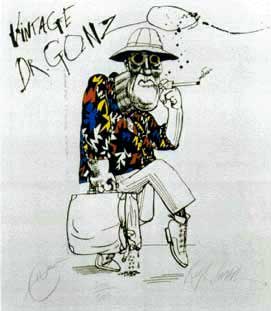Fallen Soldier
 Kyle York saw the silver Alpha Romeo as the train wreck it was: Busted radio, grime-sealed leather seats, missing parts, lackluster paint and a B-pipe detached from the muffler hanging only by a bracket.
Kyle York saw the silver Alpha Romeo as the train wreck it was: Busted radio, grime-sealed leather seats, missing parts, lackluster paint and a B-pipe detached from the muffler hanging only by a bracket.An aficionado of two-seat sports cars from his days at the University of Florida, York implored the owner --his platonic friend and a single mother of two --to restore the roadster. She demurred. Her kids came first and job came second. There was no time to fix up the Alpha, she told him; not now at least.
York stopped prodding the woman about the car, but started to hatch a plan. He’d tell her an old fling was coming to town and that he wanted to impress her with a ride in a choice sports car, even one that had clearly seen better days. He’d ask to barrow the Alpha for a day as a favor, and then secretly set to work restoring it at his dad's house on the Great Sacandaga Lake.
“I tore that damn car down to the frame,” he recalled in one of his typical caps-laced e-mails in 2008. “I steel-wooled and polished every bit of corrosion. I machined parts that were missing. I rebuilt and sealed the exhaust…And I hit it with three coats of the World's Finest Wax…When finished, I damn near had an erection.”
Of course, the rebuild took longer than a day. In fact, it took close to 36 hours. The woman was starting to get nervous about the car, which she had only expected to loan York for a day or so. York assured her everything was going alright and that he’d have it back in short order.
 After three days, he pulled into the woman’s driveway, the car shimmering like new. The worry from the woman’s face melted quickly into elation. He recalled the mother --a name now well-known in city politics --and her children “smiling like kids on their birthday looking at their first bike.”
After three days, he pulled into the woman’s driveway, the car shimmering like new. The worry from the woman’s face melted quickly into elation. He recalled the mother --a name now well-known in city politics --and her children “smiling like kids on their birthday looking at their first bike.”And York?
“I'm happier than both of them put together,” he wrote. “But that is me.”
This was quintessential Kyle York: Selfless, quirky and unnecessarily verbose, but deeply dedicated to the people he regarded as friends and the causes he championed as a citizen. Passionate is a word that falls painfully short of describing him with any degree of realism. York’s heart burned with the warmth of a thousand suns, even though that heat was sometimes received with exasperated sighs and pronounced eye rolling.
Kyle York didn’t have enemies, per se, but plenty of denizens that snickered about his causes. Usually his detractors veiled themselves in anonymity and materialized in the form of caustic comments left on local blogs and the Saratogian’s clusterfuck of a website. Yet these comments never deterred him from opining at length on any issue he saw fit.
York’s expositions were seldom short and often replete with ‘Yorkisms’ --quirky homonyms and allusions he used to stress his certain points. Still, they brimmed with the same exuberance he brought to all his pursuits.
York loved Saratoga Springs. Every last square inch of the city. Every person inhabiting its expanse. Even the people he didn’t agree with or see eye-to-eye. He was a fierce advocate of public discourse and only seemed hurt during the times when it would break down. He died in the city he championed, doing what he loved the most: Being an integral part of its vast fabric of characters.
York spent Election Day at the top of the hill on Broadway, watching as yet another whirlwind contest unfolded between the Republican camp in the Holiday Inn and the Democratic headquarters across the street at the Inn at Saratoga. Politics seemed to charge his batteries and Tuesday was no exception.
And then came the next day. He was tinkering at his Railroad Place condo. Nothing dramatic. Nothing unusual. Just another day in the life of Kyle York. Only this one happened to be his last.
 York left this world with more friends than he’ll ever know. He left Saratoga Springs a better place, which is hopefully a realization he had before exhaling his last breath. There’s no easy way to say goodbye to him other than to raise a pint and salute his memory. Peace be with you, old friend. May your legacy burn eternal.
York left this world with more friends than he’ll ever know. He left Saratoga Springs a better place, which is hopefully a realization he had before exhaling his last breath. There’s no easy way to say goodbye to him other than to raise a pint and salute his memory. Peace be with you, old friend. May your legacy burn eternal.


















